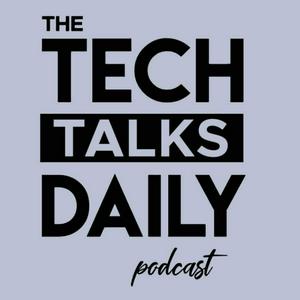What if the real AI race in 2026 isn't about building bigger models, but about where decisions are made, how fast they happen, and whether they deliver measurable value?
In this episode, I'm joined by John Bradshaw, Director of Cloud Computing Technology and Strategy at Akamai, to unpack his predictions for the next phase of cloud, AI inference, and the economics that will shape enterprise technology over the next 12 months. As organizations move beyond experimentation, John explains why the boardroom conversation has shifted from capability to return on investment, and how spiraling compute demands are forcing leaders to rethink the balance between performance, cost, and innovation.
We explore why this new financial scrutiny is not slowing AI adoption, but refining it. John shares how inefficient GPU workflows, centralized inference, and poorly aligned architectures are being challenged by a more disciplined approach that pushes intelligence closer to the edge. This shift is not only about latency and performance. It is about building scalable, value-driven platforms that can support real-time decision-making, agentic workloads, and global user experiences without breaking traditional IT budgets.
Trust is another major theme throughout our conversation. From the rise of everyday AI agents that quietly handle routine tasks to the growing importance of secure, resilient inference pipelines, John outlines how low-latency edge infrastructure, local processing, and hybrid cloud models will redefine reliability for both enterprises and consumers. We also discuss the smart home backlash following recent outages, and why the next generation of connected products will be designed to work even when the network does not.
The episode also looks at the future of streaming, where consolidation, intelligent content delivery, and AI-driven personalization are reshaping both the user experience and the economics behind the platforms. Behind the scenes, orchestration is emerging as a defining capability, with multiple models and services working together to validate outputs, reduce hallucinations, and create more dependable AI systems.
This is a conversation about moving from possibility to production, from experimentation to accountability, and from centralized architectures to distributed intelligence.
So as AI becomes embedded in every workflow and every customer interaction, will the winners be the companies with the biggest models, or the ones that know exactly where their AI should live, how it should be orchestrated, and how it proves its value every single day?


